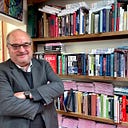The Distinctions of Memory
by Bruce Piasecki, author of memory-based books
When my mother was going gradually blind, I chose to take a trip down to Long Island, where she still insisted on navigating her home with pride. The sky was lovely, as were my favorite wind-swept beaches. I recall at will the salty Island smell in my memory. A “higher fact” surrounds those memories.
I read across that week of sonorous reading with my mother Lillian, the masterwork of St. Francis of Assisi. His complete lovely set of LITTLE FLOWERS. It is one of the fondest memories I pick up from time to time in the back of my mind.
This higher sense of my mother is vivid. There are other lasting loyal memories in my mind, now at age 67. It is still with me, this feeling of competitiveness in basketball from high school, even though my condition of competitiveness is a frail transformed former self. You can keep the memory alive, like a friend or teammate. Due to avid reading, what I have kept is a mind of self-control and loyalty to my past discernments. I write in the margins of my books, as a means of remembering meaningful encounters.
That is part of discernment, what to keep with you, and what to throw away as trash or bad, or simply uninteresting.
JUMPING FROM ONE SAINT TO ANOTHER, Francis to St. Augustine
During the years since my mother’s death, I felt The Confessions of St. Augustine “extended” and “overwritten.” Then suddenly, this week it clicked when I saw this picture in my edition of him with pen in hand, and when I read this on the facing page:
“All these things I retain in my memory, and how I learnt them I retain. I retain also many things which I have heard most falsely objected against them, which though they be false, yet it not false that I have remembered them, and I remember, too, that I have distinguished between hose truths and these falsehoods uttered against them.”
Although remarkably abstract for a canonized Saint—and so different than the active crisp poetic passages of St. Francis where you can see in the back of your mind the man in rags banging on a door in the rain to seek attention and faith — this assertion of meaning by St. Augustine matters.
After studying Heidegger and Gadamer with my Spanish professor from Avila, Ciriaco Moron Arroyo, a great Christian teacher of mine, I learnt that what we called today the passage above is St. Augustine’s account of how the human mind “appropriates” meaning.
I keep these classics in mind during my business day, and that helps be pursue distinctions. Appropriate is a conscious step process, based on faith and fact. It is the basis, today, of the cognitive sciences based on the dynamics of human’s seeking and seeing what they expect.
It is important to remember in our time of devastating big lies from Putin to Trump, that distinctions matter. It is so easy, so swift, and severe when we discount appropriate meanings. It is so easy to discount the middle way of faith and fact. With our shiny Apple or Samsung handhelds in hand, it is so easy to follow the robust constant ceaseless celebration of extremes at the core of our news cycle. I really do not care about the difference of an Apple or a Samsung handheld, deep down, despite my faith in functionality and price, but I do deeply care about any difference in faith between one Saint and another.
WHY I WRITE
This little flower is about “the distinctions of memory”, how we separate the good from the lie. It takes contemplation, and discernment, and historic context to claim — as I have in my five-part Trump is Dead Medium.com series — that we need the everyday in observation to separate truth from lies. We, the ordinary man and women, of all socioeconomic ranks, knows how to do this. We feel it, this thing called a falsehood, and built walls of meaning against it.
You can appreciate the great classics without needing to be a monk. You can own stock and business skill and still be alert to big lies and solid standings, I am proud of what bp, Shell, American Airlines, Germany and all the others have done in the last week of Putin’s invasions of Ukraine. They have pursued appropriated facts to discern ways to punish Putin. So why do so many folks still believe extremes?
The answer is how easy it is to forget distinction in the rush of our days. We need to slow up, read St. Francis, contemplate several times the flowery excesses in the phrases of St. Augustine. And in that, we deserve our older age.
Bio: Thru time, people have read into my book In Search of Environmental Excellence (1990, Simon and Schuster, and then in Quality paperback editions and finally in Rodale at turn of century), as a book of faith and fact. My latest book “A New Way to Wealth: The Power of Doing More with Less” follows that first book.
